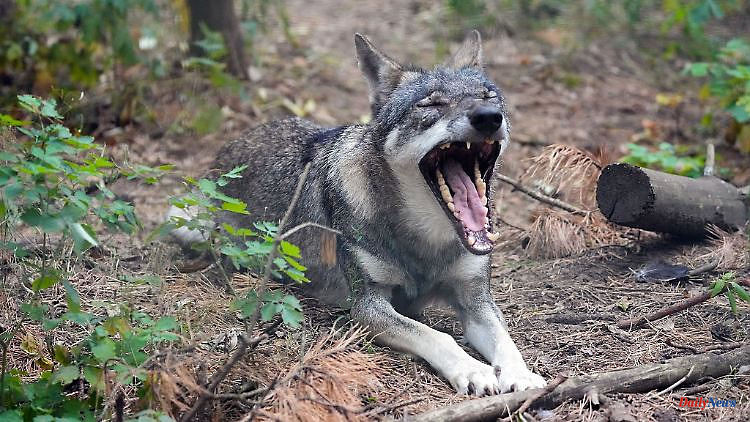The wolf is becoming increasingly at home in Hesse, there are now three packs. Experts expect the population to continue to grow in 2023. But the predators are also threatened.
Wiesbaden (dpa/lhe) - Puppies are expected to be born in all Hessian wolf territories with a pair or pack in the coming year. Annika Ploenes from the Wolf Center of the Hessian State Office for Nature Conservation, Environment and Geology (HLNUG) in Wiesbaden assumes this. But the population could not only continue to grow through offspring. "We continue to expect wolves to pass through Hesse and other wolves to settle down in Hesse," said Ploenes in Wiesbaden when asked by the dpa.
According to a Germany-wide study, Hesse offers further potential habitats for wolves. "At the same time, the pressure is increasing in the federal states in which the majority of the habitats suitable for wolves are already occupied by territories," explained Ploenes. "The puppies from these areas are accordingly looking for a suitable habitat for them in other federal states."
Hessian wolves have also made their way to neighboring regions. A female from the 2021 litter of the Rüdesheim pack was proven to have been out and about near Leubsdorf (Neuwied district) in Rhineland-Palatinate this summer, Ploenes reported.
In mid-December three packs were known in Hesse - apart from in Rüdesheim in the Rheingau, also at the Wildflecken military training area in the Rhön and in the Stölzing mountains in northern Hesse. In addition, according to the expert, a solitary wolf from the Leuscheid pack in northern Rhineland-Palatinate is resident in the Butzbach territory (Wetteraukreis). "Compared to the eastern federal states, there are still few sedentary wolves in Hesse," explained Ploenes. The animals are threatened by diseases or traffic accidents.
According to HLNUG information, there were a total of 10 proven wolf attacks on livestock by mid-December in 2022, in which 17 animals were killed. "It is important here that the majority of the animals killed were not properly protected," explained Ploenes. For example, they were not fenced in at all or only partially fenced in. "Especially in view of the fact that the number of wolves in Hesse will continue to rise, there is an urgent need to protect grazing animals properly according to good professional practice," she warned.
In the meantime, a total of 56 official and 35 voluntary wolf advisors are on the move in Hesse, among other things to document damage to wild animals and livestock.












